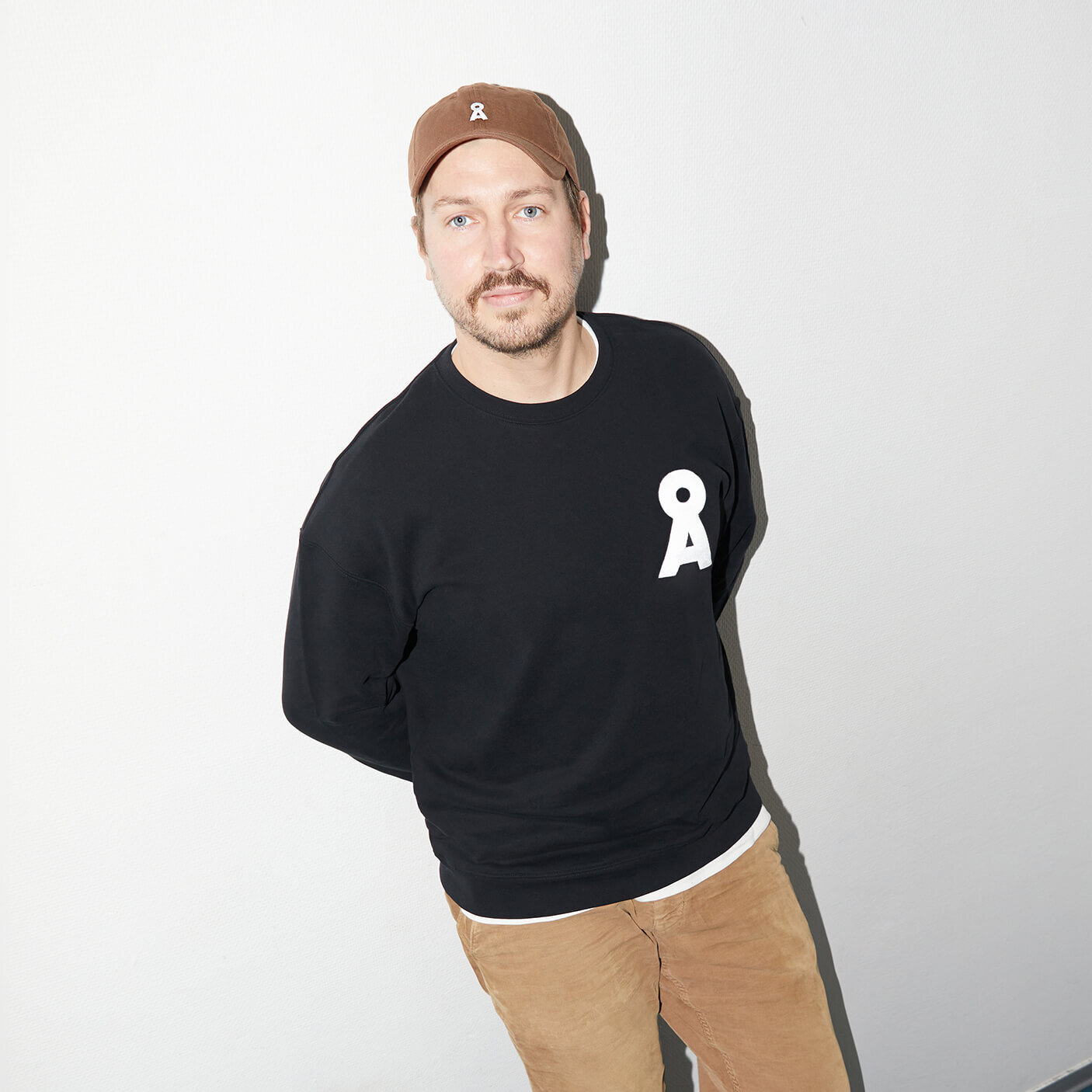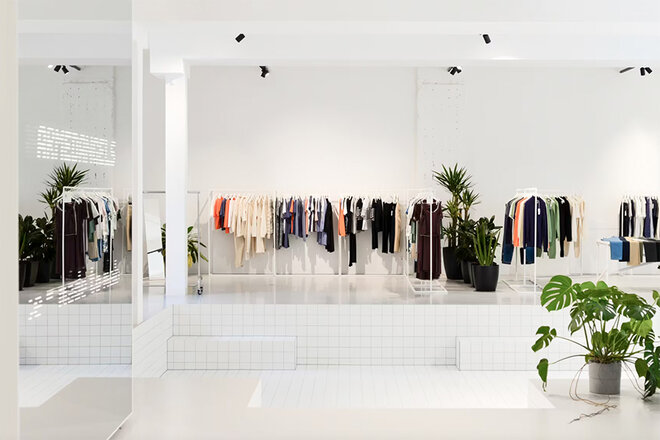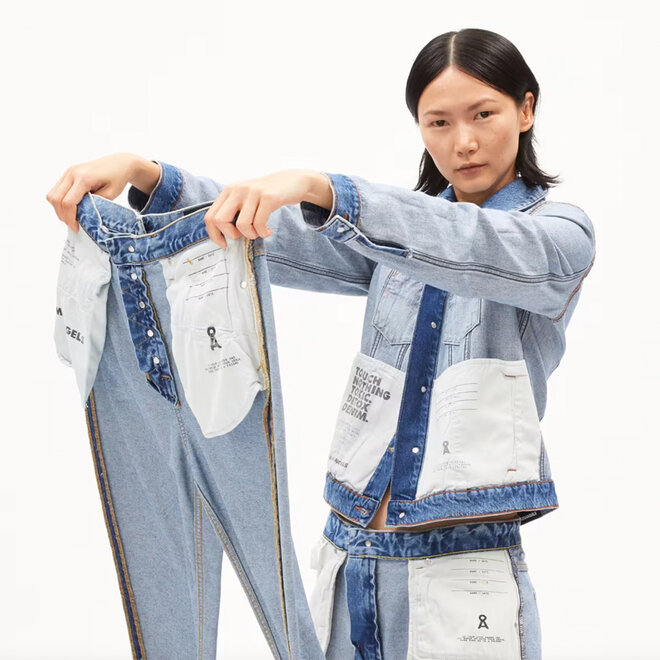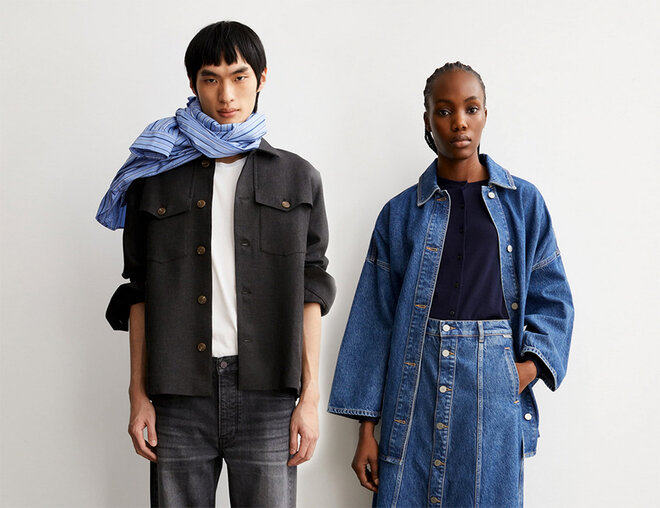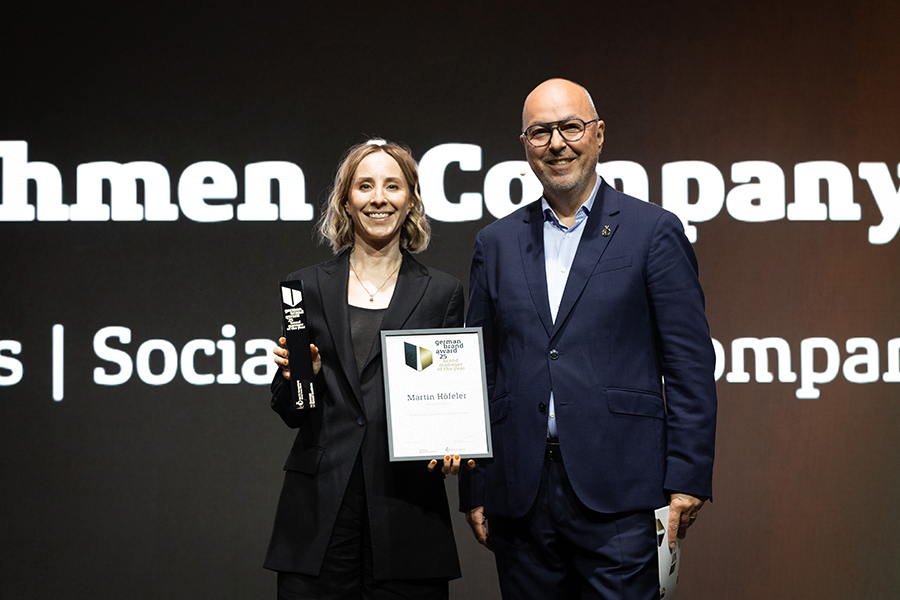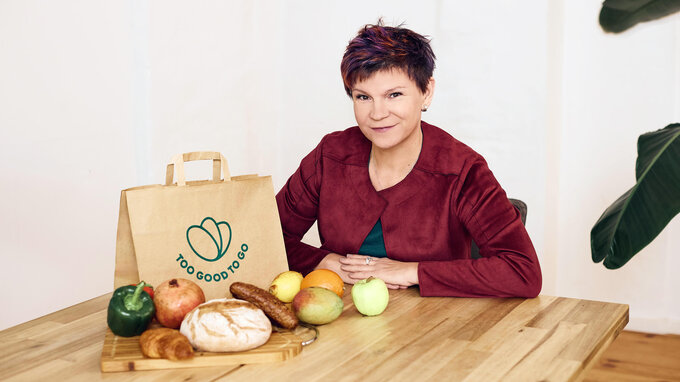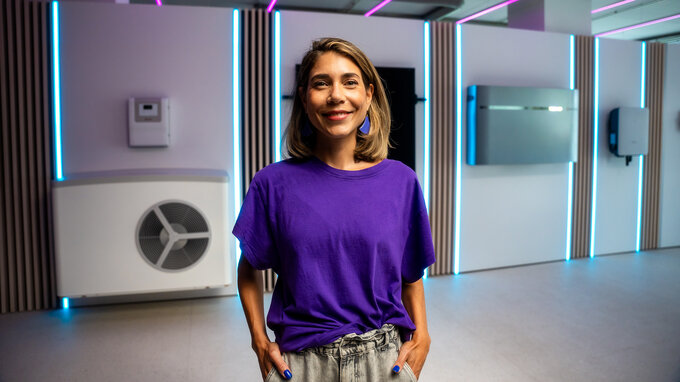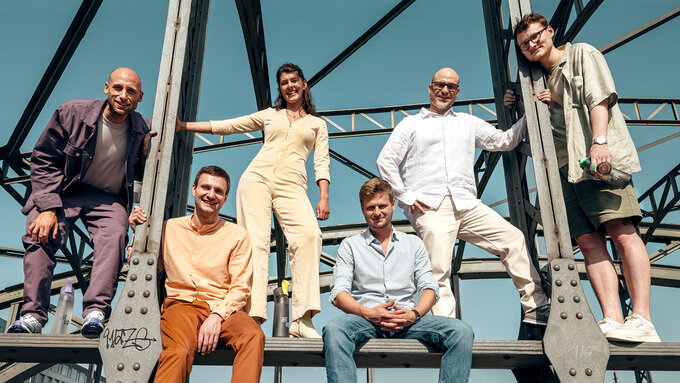How a Sustainable Thought Became a Brand
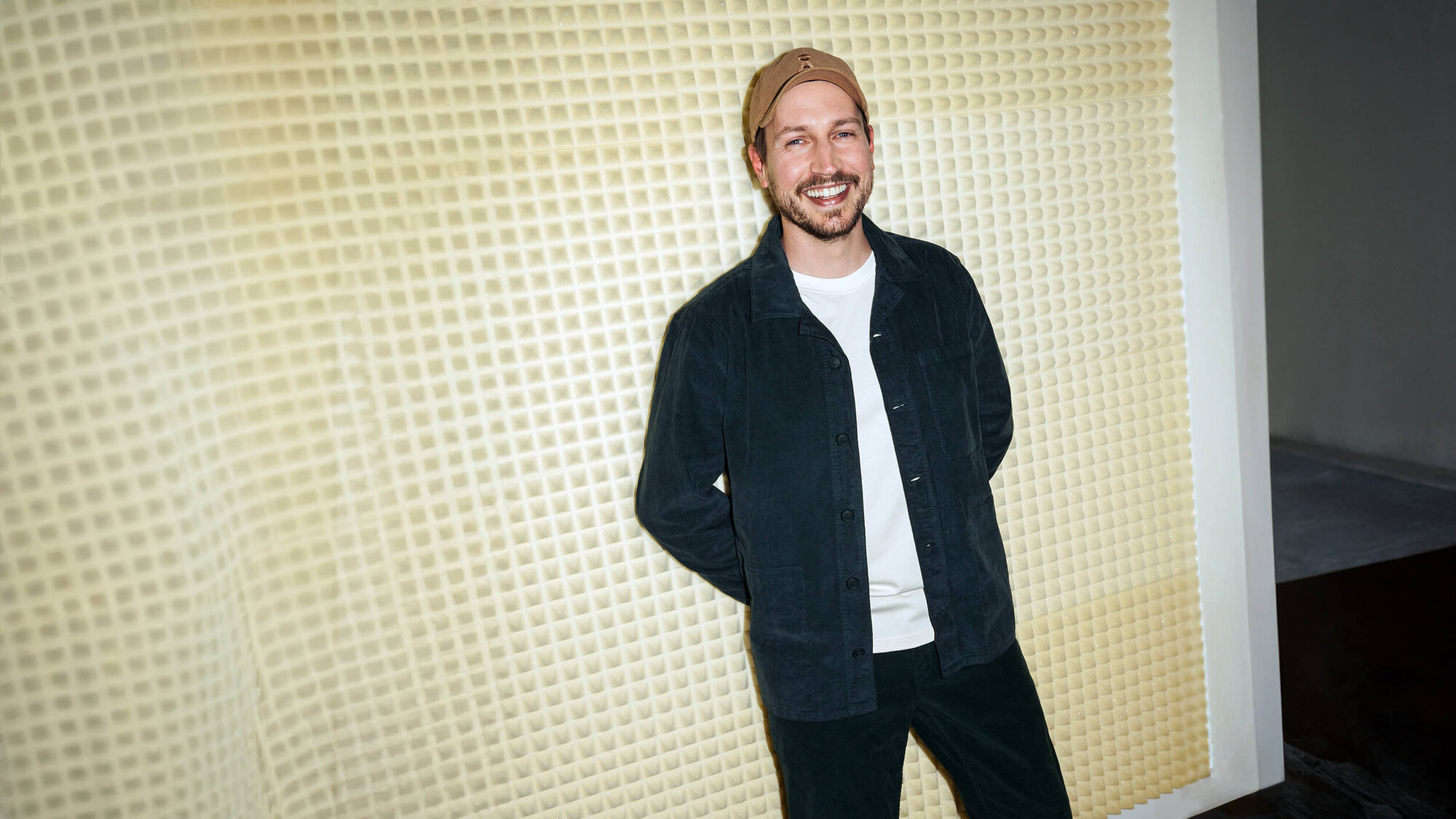

Jury Statement
A brand that has been a credible advocate for sustainability for 18 years – that can only be achieved with a clear stance. Martin Höfeler has not only built up ARMEDANGELS as a fashion company, but has also created a radical alternative to fast fashion. With DetoxDenim, circular models and responsibility in every fibre, he has shown how brand management and value orientation go hand in hand. And he himself stands tirelessly for this – authentically, consistently and publicly. An inspiring personality who shows how credible leadership can shape and strengthen a brand over many years.
Interview with Martin Höfeler
Mr. Höfeler, you were awarded the “Brand Manager of the Year“ honour at the 2025 German Brand Awards.
To be honest, the award came as a complete surprise to me, because I'm not a brand manager in the traditional sense. My role is shaped by constant learning and reflection, guided by a shared value system and an unwavering commitment to change, from company management to communication. I am therefore all the more pleased that this rather unconventional approach in the fashion industry has been recognised and honoured.
A modest attitude considering that you founded Armedangels in 2007 as a fair and sustainable fashion label and that it now leads the European market for eco-friendly fashion with record sales. How did your success story begin?
I knew early on that I wanted to become self-employed. I went to university to do something “proper“ as my parents had intended. During my studies, I met Anton Jurina and with him a partner who shared my entrepreneurial spirit and similar values. When we saw the daily hustle and bustle in our office on Mittelstraße in Cologne, we had our vision in mind: in what is perhaps the most luxurious shopping area in the city, we saw lots of shopping bags with all kinds of logos. We thought, it's great that all these brands stand for something. But which one stands for change? For added social value? I think that was an important moment for us. Otherwise, I wouldn’t still remember us standing there with nothing but T-shirts and fundraising ideas, saying: “We have to create a brand that’s different.”
More than almost any other fashion brand, Armedangels stands for the consistent implementation of its sustainability goals and social promises – from transparent supply chains to fair working conditions and innovative recycling processes. How do you realise this claim with a team of 160 employees?
The company wasn't created on the drawing board – it was founded by two clueless students without a business case, but with pure determination. Over time, we hired people who knew a lot better than we did. Recruiting always plays a big role: we communicate what we stand for and where we want to go right from the start. Every single employee is prepared to support our mission and act accordingly. It started with transparent supply chains and the journey to the origins of our T-shirts. I speak from a very privileged position, while unhealthy piecework is the reality of life in other places. Nevertheless, and precisely for this reason, I expect a production facility to have reasonable working conditions so that I can say to myself: “I would do this job too. If not, I wouldn't want to do it for anyone else.“ I expect the same respect for nature and for humans from my team.
Can you elaborate on this idea?
I remember a situation in a cotton field in India. A reporter and I were documenting the difference between the cultivation of fair trade and conventional cotton. Children offered us water from a well that was close to a treated field. The water was so incredibly contaminated that you could barely see through it. Our guides advised us to stay away from it. At the same time, we saw the father barefoot and without gloves, carrying a bottle of pesticide on his back. You have to imagine that: Someone spraying toxic chemicals unprotected and unknowingly. Their own children then drink the contaminated groundwater and have no idea what they are actually ingesting – while an informed guide warns us against it. This moment made me feel so ashamed, which is why it was clear to me: it cannot be that we are not only destroying the environment in a production chain, but also endangering people.
Does your brand also claim to do a certain amount of educational work?
Educational work is essential. Not because someone demanded it of us 18 years ago, but out of our own conviction. This brings us back to the topic of brand – and trust. I want customers to wear our brand consciously and with pride because they know about the problems of fast fashion and Armedangels offers them a solution.
You champion social missions, charitable partnerships and the circular economy – yet you don’t see Armedangels as a social business. Why? How can your business model be reconciled with profit?
Purpose and profit are fundamentally different goals. Because more sustainability honestly means less profitability – and vice versa. However, from the outset we wanted to be a profit-orientated company whose core business promotes sustainable consumption patterns. I used to work in non-profit organisations (NGOs) myself and I am sure that they are important. At the same time, I believe that the system can only be changed from within and therefore the way we do business is crucial. The profitability of a company is extremely important. Not least in order to hire employees, to pay them a growing salary and to use what we earn where we can make a difference. Profit also signals that we are doing a good job. The problem is rather that most companies act solely in terms of profit maximisation and shareholder value. I am of the opinion that profit does not have to be maximised.
How does the balance between profit orientation and sustainable management shape Armedangels' brand strategy and image?
Desirability is a key factor. We convince consumers that sustainability is the right thing to do by making fashion that is not only produced in a fair and environmentally friendly way, but is also desirable. We take the decision out of their hands in the buying process: Do I either look good or do I consume thoughtfully? It must be possible to say: “Wow, that's a great item and it's also sustainable – so much the better!“ Since demand is inconceivable without zeitgeist appeal, we focus on fashion trends – but only the long-term ones, which allow us to sneak sustainability into wardrobes à la Trojan horse.
The limited collection Heimspiel with the soccer club 1. FC Köln ties in with this idea. By firmly integrating soccer culture into the city, you have brought sustainable fashion to a large fan base. However, soccer in general has little to do with sustainability.
The collaboration with FC Köln and especially with Lukas Podolski as an ambassador was unexpected, that's true. However, such campaigns take us out of the sustainability corner in terms of communication. And I can only repeat that: I firmly believe that we can win people over with desirability. Our DetoxDenim campaign from 2018 demonstrates this very well: It’s all about jeans produced with less water and no harmful chemicals. Back then, we learnt that people are more likely to buy sustainable products when it comes to their own health. And anything that comes into direct contact with the skin and contains chemicals can theoretically end up in the body. Naturally, no one wants that. So do you buy a certified organic wool jumper for the planet or for yourself? In the end, it's the same thing. It's just a different way of communicating. And I think that has to be the task of marketing and communication: To convince people of – in our case – the right thing.
What does it take to stand out as a credible brand amid greenwashing and sustainability as a market trend?
Building trust and maintaining it through communication. Ultimately, there is always a conviction or a story behind every branded product. If you can’t believe what a brand claims, why pay the price? We ourselves have openly communicated from the very beginning that we have taken on a complex issue. As a result, we have always been very transparent about any wrong decisions before someone else had to test or criticise us from the outside. We also don't make empty promises. The fact that we use organic cotton will not save the world. It is an approach and a path. In this sense, the journey is the goal.
Where would you like to see the fashion industry in ten years?
I hope that in the future we will no longer buy for the sake of consumption, but according to need and out of conviction. My hope is that the fashion industry in particular will once again be more about design and long-lasting products. Is that realistic? At least I hope that we can achieve this change. In view of our finite resources alone, we have to make it happen.
The interview was conducted by Dr. Saskia Diehl.

